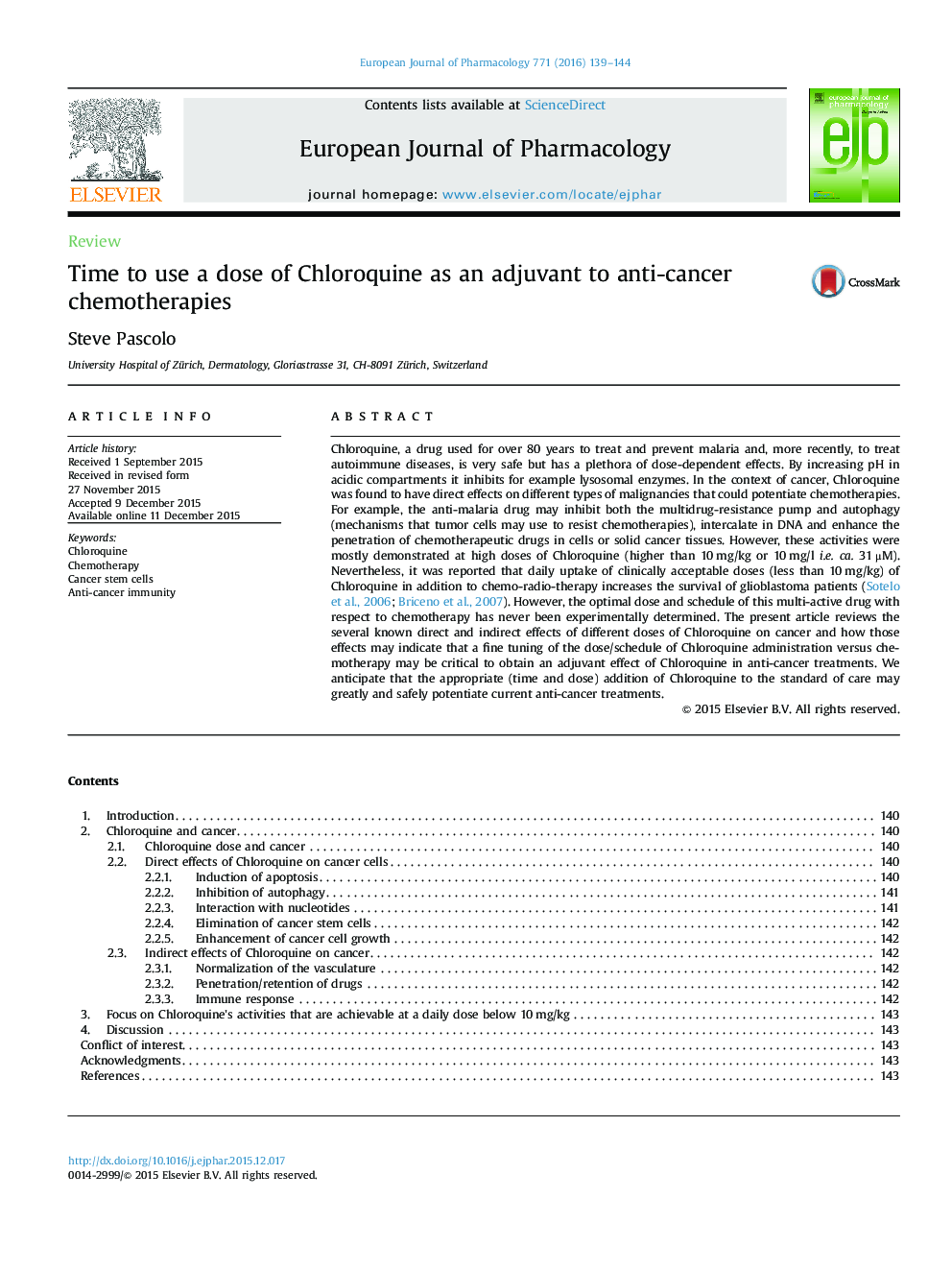| کد مقاله | کد نشریه | سال انتشار | مقاله انگلیسی | نسخه تمام متن |
|---|---|---|---|---|
| 2531022 | 1558909 | 2016 | 6 صفحه PDF | دانلود رایگان |
Chloroquine, a drug used for over 80 years to treat and prevent malaria and, more recently, to treat autoimmune diseases, is very safe but has a plethora of dose-dependent effects. By increasing pH in acidic compartments it inhibits for example lysosomal enzymes. In the context of cancer, Chloroquine was found to have direct effects on different types of malignancies that could potentiate chemotherapies. For example, the anti-malaria drug may inhibit both the multidrug-resistance pump and autophagy (mechanisms that tumor cells may use to resist chemotherapies), intercalate in DNA and enhance the penetration of chemotherapeutic drugs in cells or solid cancer tissues. However, these activities were mostly demonstrated at high doses of Chloroquine (higher than 10 mg/kg or 10 mg/l i.e. ca. 31 μM). Nevertheless, it was reported that daily uptake of clinically acceptable doses (less than 10 mg/kg) of Chloroquine in addition to chemo-radio-therapy increases the survival of glioblastoma patients ( Sotelo et al., 2006 and Briceno et al., 2007). However, the optimal dose and schedule of this multi-active drug with respect to chemotherapy has never been experimentally determined. The present article reviews the several known direct and indirect effects of different doses of Chloroquine on cancer and how those effects may indicate that a fine tuning of the dose/schedule of Chloroquine administration versus chemotherapy may be critical to obtain an adjuvant effect of Chloroquine in anti-cancer treatments. We anticipate that the appropriate (time and dose) addition of Chloroquine to the standard of care may greatly and safely potentiate current anti-cancer treatments.
Journal: European Journal of Pharmacology - Volume 771, 15 January 2016, Pages 139–144
